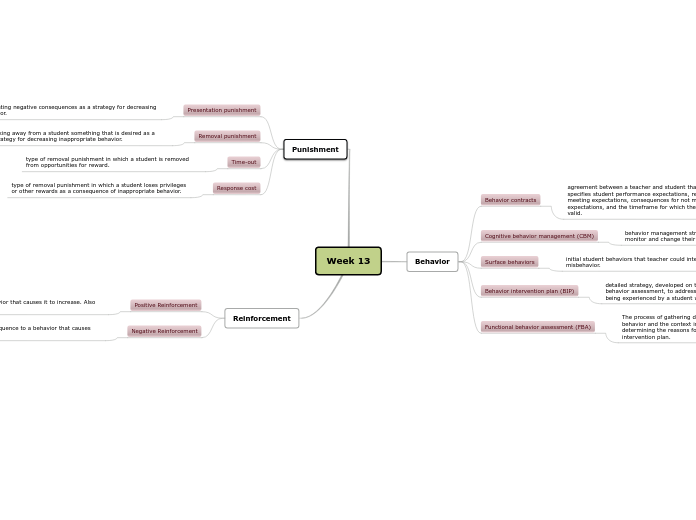Week 13
Behavior
Behavior contracts
agreement between a teacher and student that clearly specifies student performance expectations, reward for meeting expectations, consequences for not meeting expectations, and the timeframe for which the agreement is valid.
Cognitive behavior management (CBM)
behavior management strategy in which students learn to monitor and change their own behavior.
Surface behaviors
initial student behaviors that teacher could interpret as misbehavior.
Behavior intervention plan (BIP)
detailed strategy, developed on the basis of a functional behavior assessment, to address significant behavior problems being experienced by a student with a disability.
Functional behavior assessment (FBA)
The process of gathering detailed data on the students behavior and the context in which it occurs for the purpose of determining the reasons for it and creating a behavior intervention plan.
Punishment
Presentation punishment
presenting negative consequences as a strategy for decreasing behavior.
Removal punishment
taking away from a student something that is desired as a strategy for decreasing inappropriate behavior.
Time-out
type of removal punishment in which a student is removed from opportunities for reward.
Response cost
type of removal punishment in which a student loses privileges or other rewards as a consequence of inappropriate behavior.
Reinforcement
Positive Reinforcement
a consequence to a behavior that causes it to increase. Also called a reward
Negative Reinforcement
a potential negative consequence to a behavior that causes the behavior to increase
